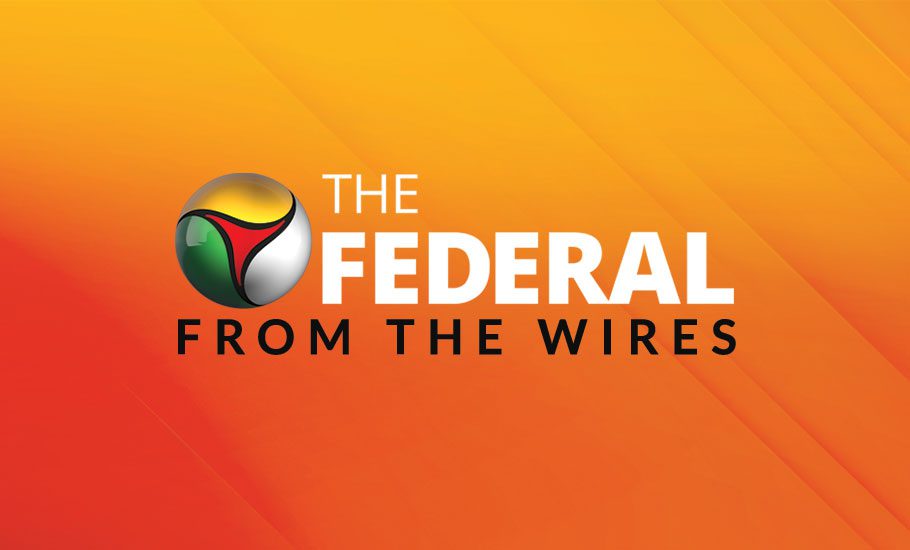
Gadkari launches construction work for one of Asia's longest tunnels

Union Minister Nitin Gadkari on Thursday launched the first blasting for construction related work at the 14.15 km Zojila tunnel, one of the longest in Asia, that will provide all-year connectivity between Srinagar valley and Leh.
The project holds strategic significance as Zojila Pass is situated at an altitude of 11,578 feet on the Srinagar-Kargil-Leh National Highway and remains closed during winters due to heavy snowfall. At present it is one of the most dangerous stretches in the world to drive a vehicle and this project is also geo-strategically sensitive.
Initiating the blast in a virtual ceremony, Road Transport, Highways and MSMEs Minister Gadkari termed it a “moment of pride” for India.
He said the re-modelling of the project will result in savings to the tune of Rs 4,000 crore to the public exchequer without any compromise on safety, security and quality.
Blasting means blowing up or breaking apart something solid with explosives.
The tunnel will provide all-weather connectivity between Srinagar valley and Leh (Ladakh plateau) on NH-1, and will bring about an all-round economic and sociocultural integration of Jammu & Kashmir.
It involves construction of a 14.15-km long tunnel at an altitude of about 3,000 m under Zojila pass (presently motorable only for six months in a year) on NH-1 connecting Srinagar and Leh through Drass and Kargil.
“This tunnel when completed will be a landmark achievement in the history of modern India. It will also be of great importance to the Defence of the country, in view of the fact that massive military activities along our borders in Ladakh, Gilgit and Baltistan regions are taking place,” the government said.
Zojila Tunnel project shall bring to fruition, 30 years of overwhelming public demand of Kargil, Drass and Ladakh region, the statement said and added that the project will make the travel on Srinagar-Kargil-Leh Section of NH-1 free from avalanches, would enhance safety and would reduce the travel time from more than 3 hours to 15 minutes.
The project was re-awarded this year to Megha Engineering & Infrastructure Ltd (MEIL) which had emerged as the lowest bidder quoting Rs 4,509.5 crore for the project. The other two bidders in the race were Larsen & Toubro and Ircon International JV.
Prime Minister Narendra Modi in May 2018, had laid the foundation stone for the Rs 6,800 crore project, billed as Asias longest bi-directional tunnel, in Jammu and Kashmir.
Unveiling a plaque for commencement of work for the tunnel, Modi had said, “Zojila tunnel is not a mere tunnel but a modern-day marvel.” However, the National Highways and Infrastructure Development Corporation Ltd (NHIDCL) on January 15, 2019 terminated the contract awarded to troubled IL&FS group company — IL&FS Transportation — after it abandoned the project citing financial problems.
In February this year, Gadkari reviewed this whole project in detail in order to reduce the cost and to execute the languishing project on priority and had referred the matter to an expert group that suggested construction of two-lane bi-directional single tube tunnel without parallel egress/escape passage and reduction in construction shafts from three to two.
“The construction cost of Zojila tunnel was earlier worked out at Rs 6,575.85 crore and after considering the escalation @ 5 per cent per annum and the total capital cost of the project as Rs 8,308 crore by NHIDCL. Thus, the total integrated cost of the project including Zojila tunnel and approaches up to Z- Morh tunnel works out to Rs 10,643 crores,” Ministry of Road Transport and Highways said.
Compared to the present cost of the integrated project, based on the tender received at Rs 4,509.5 crore, the total capital cost of the project would be Rs 6,808.63 crore, it added.
“Thus, after re-modelling of the project and reaping the benefit of integrated project management by segregating the egress tunnel & utilizing the excavated rock material in construction of approaches, generated from tunnel boring, resulted in an anticipated saving of Rs 3,835 crore,” it added.
(Except for the headline, this story has not been edited by The Federal staff and is auto-published from a syndicated feed.)

